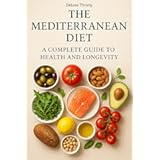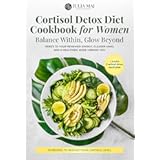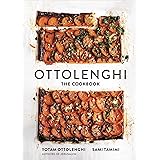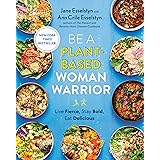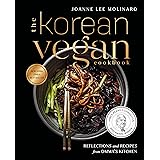Navigating the complex world of nutrition and weight loss can often feel like a constant battle, filled with conflicting advice and confusing food labels. Many individuals struggle to identify truly beneficial foods, frequently falling prey to fad diets or restrictive eating plans that are unsustainable in the long run. This common issue often leads to frustration, stagnant progress, and a general lack of understanding about how certain foods genuinely support overall health and weight management.
Fortunately, the path to sustainable weight loss and improved health doesn’t require drastic measures or an exhaustive list of exotic ingredients. Instead, it involves focusing on a select group of powerful, nutrient-dense “go-to” foods that naturally support your body’s systems. As discussed in the video above by Dr. Anthony from the Fit Father Project and Fit Mother Project, incorporating these ten best foods for weight loss, energy, and overall wellness can revolutionize your approach to eating. This article will delve deeper into each of these foundational foods, explaining their unique benefits and how they can be effortlessly integrated into your daily routine for optimal results.
1. Chia Seeds: The Tiny Powerhouses of Nutrition
Kicking off our list, chia seeds are small yet incredibly mighty, packed with an impressive array of essential nutrients. These seeds are a superior source of omega-3 fatty acids, specifically alpha-linolenic acid (ALA), which plays a crucial role in heart health, brain function, and reducing systemic inflammation throughout the body. Furthermore, their high fiber and protein content contribute significantly to satiety, helping you feel fuller for longer after meals and reducing the likelihood of overeating or unhealthy snacking.
One of the most remarkable properties of chia seeds is their ability to absorb liquid and form a gel-like consistency in your digestive tract. This gelling action not only aids in prolonging fullness but also helps regulate blood sugar levels, preventing rapid spikes and crashes that can lead to cravings. Incorporating them is simple: blend a couple of tablespoons into your morning smoothie or yogurt, or create a delicious chia pudding using coconut milk and a touch of stevia. This versatile superfood makes an excellent addition to any healthy eating plan, providing sustained energy and supporting your weight loss goals effectively.
2. High-Quality Eggs: A Nutritional Comeback Story
For decades, eggs were unjustly villainized due to their cholesterol content, largely a misconception born from the low-fat movement. However, modern scientific research has overwhelmingly vindicated eggs, confirming their status as a true nutritional powerhouse. Eating one to three eggs for breakfast can actually enhance heart health, as studies show they contribute to healthier cholesterol patterns, promoting beneficial, “fluffier” LDL particles rather than small, dense ones.
The nutritional value of an egg extends far beyond its protein-rich white; the yolk is where the magic truly happens. It’s brimming with fat-soluble vitamins (A, D, E, K) and an abundance of choline, an essential nutrient vital for brain health, memory, and cognitive function. Moreover, consuming the whole egg, with both yolk and white, offers synergistic benefits for muscle building and overall nutrient absorption. Opt for high-quality, pastured-raised eggs, identifiable by their vibrant, orange yolks, which indicate a superior nutrient profile from hens raised on natural diets and with outdoor access.
3. The Mighty Avocado: Your Healthy Fat Hero
Often considered a vegetable in culinary contexts, the avocado is botanically a fruit, revered for its creamy texture and exceptional nutritional density. Adding avocado to any meal instantly elevates its health profile, largely due to its abundance of monounsaturated healthy fats. These fats are beneficial for cardiovascular health, joint lubrication, and maintaining stable energy levels, while also enhancing the absorption of fat-soluble vitamins from other foods consumed simultaneously.
Beyond its well-known fat content, avocados boast a special compound called avocatin B, which researchers have identified as a key player in regulating blood sugar levels and improving insulin sensitivity. This means that including avocado in your meal can help smooth out glucose spikes, providing more sustained energy and reducing the likelihood of subsequent hunger pangs. A small avocado contains approximately 20 grams of healthy fats, while half of a larger one offers a similar 15-20 gram serving, making it a perfect addition to salads, alongside proteins, or paired with your morning eggs for a satisfying and metabolism-boosting meal.
4. Green-Tip Bananas: The Resistant Starch Secret
Bananas undergo a fascinating transformation as they ripen, dramatically altering their nutritional composition. While fully ripe, spotty bananas are high in simple sugars, their greener counterparts, especially those with a distinct green tip, are champions of resistant starch. This particular type of fiber resists digestion in the small intestine, instead traveling to the large intestine where it acts as a powerful prebiotic, feeding beneficial gut bacteria.
When your gut microbiome thrives on resistant starch, it produces short-chain fatty acids (SCFAs) that positively impact weight loss, immune function, and even neurotransmitter production, contributing to improved mood and overall well-being. Unlike ripe bananas, green-tip varieties have a lower glycemic index, meaning they cause a slower, more controlled rise in blood sugar. To preserve their resistant starch content, consider separating bananas upon purchase, as they release ethylene gas that accelerates ripening. Enjoy green-tip bananas in post-workout smoothies or as a fiber-rich snack to support healthy digestion and weight management.
5. S-Fish: Omega-3 Riches from the Sea
While seafood offers numerous health benefits, choosing the right types is paramount to avoid potential pitfalls like high mercury levels. Steer clear of large, long-lived predatory fish such as swordfish, shark, and some tunas, which can accumulate neurotoxic mercury. Instead, focus on “S-fish” – sardines, wild salmon, and certain shellfish like oysters and scallops – which are notably low in mercury and exceptionally rich in vital nutrients.
Wild-caught salmon and sardines are particularly celebrated for their abundance of EPA and DHA, the active forms of omega-3 fatty acids. These essential fats are critical for maintaining heart and brain health, lubricating joints, improving skin health, and optimizing cellular function throughout the body. Sardines, in particular, offer an incredibly convenient and nutrient-dense option for a quick lunch or snack, providing a potent dose of omega-3s without the need for extensive preparation. Baking wild Alaskan salmon with asparagus and a squeeze of lemon makes for an amazing, satisfying meal that supports both weight loss and overall vitality.
6. High-Quality Grass-Fed Beef: Lean and Nutrient-Dense Protein
Red meat has faced its share of controversy, but focusing on high-quality, grass-fed beef reveals a nutrient-packed food that can be a valuable component of a healthy weight loss diet. Unlike grain-fed or corn-fed alternatives, grass-fed beef is significantly lower in total fat and calories, with studies suggesting that choosing grass-fed over grain-fed can save over 17,000 calories annually for regular consumers. This leaner profile makes it an excellent source of sustained energy and satiety.
Beyond calorie savings, grass-fed beef boasts a superior fatty acid profile, including higher levels of conjugated linoleic acid (CLA), a natural fat shown to aid in weight loss and muscle retention. It is also richer in antioxidants, essential vitamins, and minerals compared to its conventional counterparts. For an even greater nutritional boost, consider ancestral beef blends that incorporate organ meats like liver and heart, which are incredibly dense in micronutrients without altering the flavor profile significantly. Prioritizing pasture-raised beef ensures the highest quality, supporting not only your health but also ethical and sustainable farming practices.
7. Organic Blueberries: Antioxidant Powerhouses
Organic blueberries are universally recognized as a superfood, celebrated for their potent antioxidant properties and numerous health benefits. Their vibrant blue hue is attributed to bioflavonoids, particularly anthocyanins, which are powerful compounds known to support cognitive health, improve memory, and enhance overall energy production. As a significant aid in weight loss, a recent study demonstrated that individuals consuming one cup of blueberries daily for two weeks experienced increased fat burning during exercise, suggesting these berries can up-regulate specific fat-burning genes.
Beyond their fat-burning capabilities, blueberries are rich in fiber, vitamins, and minerals, contributing to arterial health, brain function, and overall vitality. While conventional blueberries are beneficial, wild blueberries, though smaller, contain even greater concentrations of these amazing bioflavonoids due to their natural growth conditions. Freezing organic wild blueberries is an excellent way to preserve their nutritional integrity and convenience, making them ideal for smoothies, topping Greek yogurt, or drizzling over salads for a delicious and health-boosting snack. Despite their natural sugars, the fiber and unique compounds in blueberries actually promote better insulin sensitivity and blood sugar balance over time.
8. Nuts and Seeds: Satisfying and Sustaining Snacks
Nuts and seeds are an incredible category of foods, offering a convenient and nutrient-dense solution for healthy snacking and meal enhancement. Varieties like pistachios, walnuts, and macadamia nuts are loaded with healthy fats, protein, and fiber, making them highly effective at promoting satiety and curbing hunger between meals. This powerful combination helps prevent the dreaded 3 PM “hangry” feeling, often leading to poor food choices.
Storing raw, organic nuts and seeds in the freezer helps maintain their freshness and prevents the healthy fats from becoming rancid. While raw is often preferred for maximal nutrient retention, roasted nuts without unhealthy added vegetable oils or excessive sodium are also good options. Be cautious of heavily processed nut snacks with artificial flavorings, preservatives, and high sodium content. Simple, unadulterated nuts are perfect for on-the-go fuel, enhancing smoothies, or creating wholesome pesto with ingredients like pine nuts, fresh basil, and olive oil. Incorporating a variety of nuts and seeds ensures a broad spectrum of micronutrients that contribute to sustained energy and overall wellness.
9. Beans and Lentils: Fiber and Protein Powerhouses
Often hailed as “magical fruits,” beans and lentils are indeed nutritional powerhouses, particularly celebrated for their exceptionally high content of soluble fiber. This type of fiber is remarkably effective at lowering cholesterol levels, acting like a sponge to bind cholesterol in the digestive tract and remove it from the body. Furthermore, soluble fiber provides crucial nourishment for gut bacteria, fostering a healthy microbiome that positively influences digestion, immunity, and overall metabolic health.
Beyond fiber, beans and lentils are an excellent source of plant-based protein, offering a low-fat alternative to animal proteins and significantly contributing to satiety. For those concerned about lectins, natural plant compounds present in beans, opting for pressure-cooked varieties like Eden Organics can help minimize their presence. Black beans are incredibly versatile for making hearty chilies or as a flavorful side dish, while lentils, especially in traditional Indian dals, provide a unique texture and a dense profile of vitamins and minerals. Regularly incorporating these legumes into your diet helps diversify nutrient intake and supports effective weight management by keeping you full and satisfied.
10. Organic Salad Greens: The Foundation for Health
Organic salad greens, such as romaine, baby gem lettuce, and sweet baby lettuces, form the perfect foundation for nutrient-rich meals. These pre-packaged, triple-washed greens offer unparalleled convenience, providing an immediate source of essential vitamins, minerals, and insoluble fiber. Insoluble fiber is crucial for digestive regularity, adding bulk to stools and promoting healthy bowel movements, which is vital for detoxification and maintaining a healthy weight.
While spinach and other dark leafy greens are nutritious, some individuals may benefit from rotating their consumption of greens, as high intake of certain varieties can lead to concerns about oxalates affecting the GI tract. Focus on creating vibrant salads with your preferred organic lettuces, topped with healthy additions like hemp seeds, extra virgin olive oil, olives, and organic broccoli sprouts. These simple salads require minimal preparation time and can be customized with hard-boiled eggs or a lean protein for a complete, satisfying meal. Making fresh, crisp salads a regular part of your diet is an easy and effective strategy to boost your vegetable intake, enhance satiety, and support your journey towards sustainable, natural weight loss.


